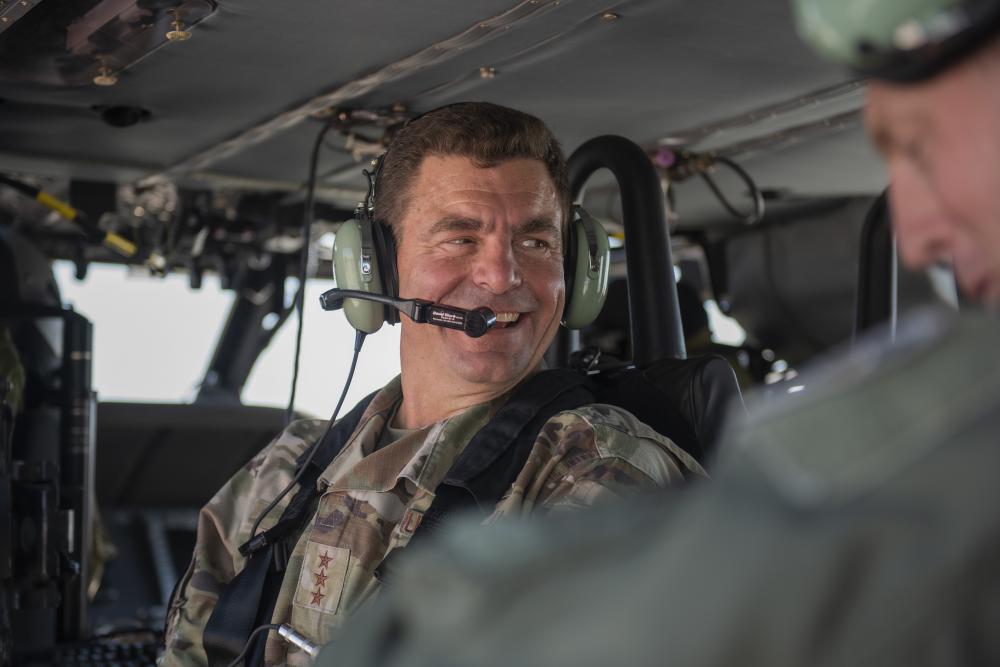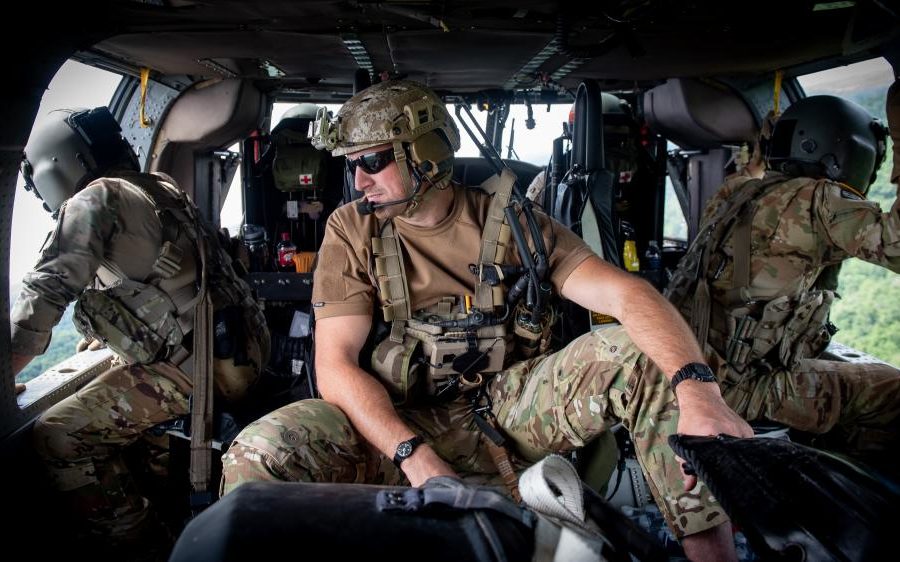As the Air Force pushes forward with the concept of multi-capable Airmen, where troops perform roles outside their usual specialty, the top Air National Guardsman says his command is particularly well-suited to respond, since most members of the Air National Guard bring skills from their civilian careers that can help accomplish Air Force missions.
Other military leaders are starting to realize that as well, director of the Air National Guard Lt. Gen. Michael Loh told reporters at the AFA Warfare Symposium, recounting a conversation with U.S. Cyber Command boss Gen. Paul Nakasone.
“‘They’re developing their own skill sets that I don’t train in the military,’” Loh recalled Nakasone telling him about cybersecurity experts in the ANG. “Then when they come back on mission two years later, it’s unbelievable what you all can do.’”
The problem is that while individual units or commanders may be aware of the multi-capable skills their Airmen bring to the fight, the larger force is not—there is no system for tracking those skills throughout the Guard, Loh said.
“At the unit level, they know their people and they actually see it,” Loh said. “At the organizational level, I don’t have the visibility that I would like.”
For example, if Loh needed a temporary program manager, he would have to contact each unit in his command to find out who does program management. It is a cumbersome process, and Loh wants a human resources system to make it less difficult to find qualified Air Guardsmen.
“Eventually if we get the right human resources system, where I can actually start plugging some of these attributes and capabilities in, then we’ll have a much better [system],” he said.

Under the current system, Air Guardsmen volunteer their unique skills on an ad hoc basis. Loh recalled during a recent visit to western Africa how one Guard member who is an electrical engineer in his civilian job stepped up to fix a transformer problem on his base.
At the same location, a security forces Airman who was born in Côte d’Ivoire volunteered for air advisor training and used his skills as a civilian police officer to build partnerships with local militaries in their own language.
Those kinds of unique skills may play a vital role in a possible conflict with China. The Air Force has doubled down on the operational concept of Agile Combat Employment, where U.S. and allied air bases are dispersed throughout the Indo-Pacific in a way that makes it more difficult for China to target those bases with ballistic missiles. ACE hinges on the use of small air bases that have much less infrastructure and personnel than the established ones Airmen have become accustomed to. That emphasis on a light footprint requires Airmen to perform more tasks with fewer people, hence the concept of multi-capable Airmen.
“Every unit is doing something for Agile Combat Employment,” Loh said. “How do I take a small team and deliver combat airpower?”
Commanders may be able to build those small teams more quickly if they have a system for tracking the skills of Airmen in greater detail.
“I’m trying to get the infrastructures,” said Loh, who mentioned the Air Force Integrated Personnel and Pay System as a possible starting point. “There are some capabilities there. Can we actually add some of these other identifiers and make it easy for us to find those individuals?”
The general said it was not an issue of resources or authority to establish such an infrastructure, just a matter of how to go about executing it. He imagined either building a new system like one similar to LinkedIn, where users can list specific skills, or bolting similar capabilities onto an existing system.
Loh said the National Guard is sometimes called “the most flexible force”—and a better talent tracking system might help commanders take full advantage of that flexibility.

